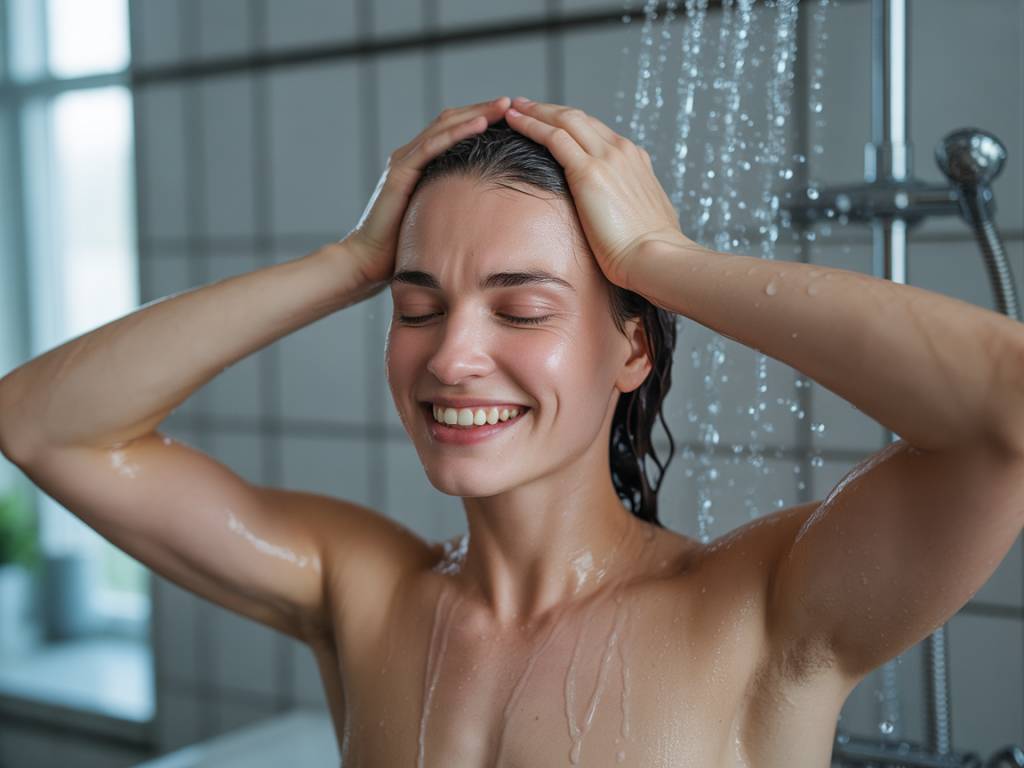What Is a Cold Shower?
A cold shower refers to the practice of bathing in water at temperatures typically below 21°C (70°F). The temperature may vary, but the general concept involves exposure to cold or icy water for a period of time, usually one to five minutes. While this may sound jarring to many, especially those accustomed to hot and soothing showers, cold showers have been gaining attention for their potential health benefits—both physical and mental.
Boosting Circulation and Cardiovascular Health
One of the most well-documented benefits of cold showers is their capacity to stimulate circulation. When the body is exposed to cold water, blood vessels constrict (vasoconstriction), which temporarily slows blood flow. Once the body begins to warm again, the vessels dilate rapidly (vasodilation), leading to a more efficient circulation system.
Improved circulation is associated with numerous benefits, including better oxygen and nutrient delivery, enhanced cardiac function, and reduced risk of hypertension and cardiovascular disease. This process helps to « train » the vascular system to respond more efficiently, acting much like cardiovascular exercise in building resilience.
Immune System Stimulation
Regular cold showers may contribute to a stronger immune response. Scientific studies suggest that cold exposure can increase the number of white blood cells, particularly lymphocytes and monocytes, which are essential to immune function. A notable study published in the journal PLOS ONE in 2016 showed that individuals who took cold showers for 30 consecutive days took fewer sick days from work compared to those who did not.
This immune boost may be linked to increased metabolic rate and higher levels of circulating norepinephrine, a hormone known to enhance alertness and immune function.
Mental Health and Resilience
Cold showers exert a noteworthy impact on mental well-being. One of the primary ways they achieve this is through the stimulation of the sympathetic nervous system, which induces a state of alertness and increased energy. This response can generate a sense of mental clarity and improved mood.
Moreover, cold showers have been shown to increase levels of endorphins and norepinephrine, two chemicals in the brain that act as natural antidepressants. Emerging research suggests that cold water exposure may support individuals managing depression and anxiety by activating the brain’s “blue spot,” or locus coeruleus, which is rich in norepinephrine-producing neurons.
The brief stress induced by cold exposure, also known as hormesis, may also enhance mental resilience. By routinely exposing the body and mind to controlled stress, individuals may become more adept at handling daily life stressors, ultimately improving psychological endurance.
Enhancing Recovery and Reducing Muscle Soreness
Cold water immersion is widely used among athletes and fitness enthusiasts for post-workout recovery. Cold showers can help reduce muscle inflammation, pain, and soreness after intensive physical exercise. This is primarily due to the reduction in blood flow, which curtails the accumulation of lactic acid in fatigued muscle tissue.
By minimizing delayed onset muscle soreness (DOMS), cold showers can accelerate recovery time and improve overall performance. Though not as extreme as full cold immersion used in professional sports therapy, a daily cold shower can still offer incremental benefits for amateur and regular exercisers.
Promoting Healthier Skin and Hair
Hot water can strip the skin of its natural oils, leading to dryness and irritation. In contrast, cold showers can help tighten the pores on your skin and reduce the risk of acne and dryness by preserving the skin’s natural protective barrier.
In terms of hair health, cold water tightens the hair cuticles and prevents them from opening up, leading to silkier and shinier hair. Moreover, the increased blood flow stimulated by cold exposure nourishes hair follicles, potentially improving growth and strength over time.
Increased Willpower and Discipline
Stepping into a cold shower each morning is more than a health practice—it’s a psychological challenge. The act of doing something inherently uncomfortable and resisting the instinct to seek warmth can bolster mental toughness, self-discipline, and willpower over time.
This daily exercise in mental strength can translate into other areas of life, making it easier to form good habits, remain consistent in one’s fitness goals, or resist other challenges that require determination.
Supporting Weight Loss and Metabolism
Though not a magic bullet for weight loss, cold showers can play a role in metabolic regulation. Exposure to cold stimulates brown adipose tissue (BAT), a type of fat tissue that generates heat by burning calories. Brown fat is known to increase energy expenditure, making it a valuable ally in weight management efforts.
Activation of thermogenesis—the process by which the body produces heat—can lead to modest calorie burn, but when combined with a healthy diet and exercise, cold showers may support long-term weight loss goals.
Best Practices for Taking Cold Showers
Integrating cold showers into your wellness routine involves a degree of preparation and intentionality. Here are some practical tips for beginners:
- Start with lukewarm water and gradually decrease the temperature until it feels cold but bearable.
- Begin with short exposures—30 seconds to 1 minute—and increase the duration as your tolerance builds.
- Focus on deep breathing to manage the initial shock and help the body relax under cold conditions.
- Do not attempt cold showers if you have pre-existing cardiovascular conditions without consulting a healthcare provider.
- Experiment with timing: some people prefer morning cold showers for energy, while others use them post-workout for recovery.
Safety Considerations
While cold showers offer a range of benefits, they may not be suitable for everyone. Individuals with heart disease, Raynaud’s syndrome, or respiratory illness should consult their physician before adopting cold exposure practices. Sudden cold immersion can elevate blood pressure and heart rate, posing risks for those with underlying medical conditions.
Additionally, it is essential to distinguish between cold showers and ice baths. The latter involves more extreme cold and prolonged exposure, which increases the risk of hypothermia and should only be used under professional guidance.
Final Thoughts on Cold Showers and Health
The regular practice of cold showers can serve as a low-cost, accessible tool for enhancing both mental and physical health. From improved immune function and circulation to reduced symptoms of depression and anxiety, the evidence increasingly supports cold exposure as a sustainable wellness intervention.
Whether used as part of a broader regime of health optimization or simply as a personal challenge to build resilience and focus, cold showers tap into the body’s natural mechanisms for adaptation, healing, and vitality. With mindful integration into daily routines, they can provide consistent, measurable benefits over time.

